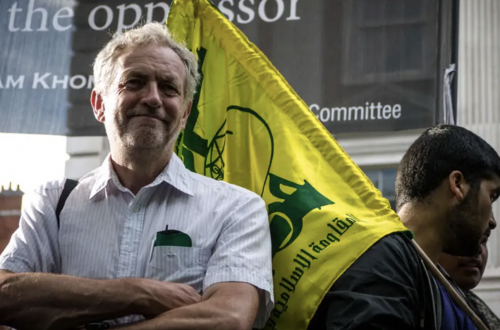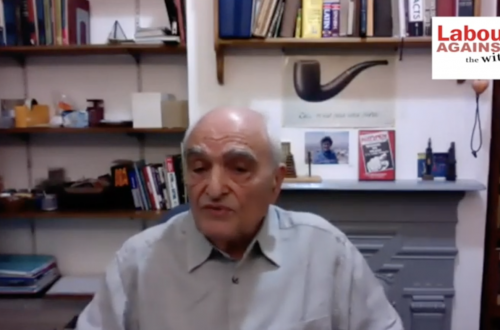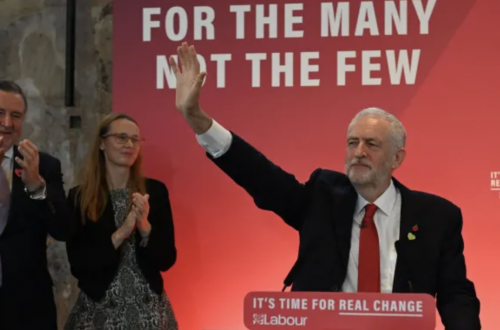This is a guest post by Ashkaan Golestani
Luis Suarez’s refusal to shake Patrice Evra’s on Saturday 11th did little to ease tensions in the ‘racism’ issue, which has been a point of great controversy in the game of football over the past few months. The thing that struck me most was not the snub itself, but the fact that having rebuffed Evra’s handshake, Suarez hugged various Liverpool teammates before the start of the match, one of them being Glen Johnson.
Now if Suarez is truly a racist, he may well have decided against such an embrace of a coloured player, whether or not he is in the same team. What’s more, Suarez’s own grandfather is black. Similarly, half of John Terry’s teammates are dark-skinned, and he has played countless England games alongside Rio Ferdinand, whose brother Anton’s allegations of racial abuse against Terry will undoubtedly have created tensions between the two centre-backs. There seems to be a glaring contradiction in the apparently two-faced behavior of players like Suarez and Terry. Is there an explanation for their – alleged in Terry’s case – comments, other than a deep-seated racism, as some commentators would like to suggest?
Professional sport, at the highest level, is hugely competitive. Tensions often reach boiling point, and football is no exception. In fact, it is a prime example. When emotions are running high and animosity between players – of whatever colour – develop, offensive comments are frequently made. Take Materazzi’s jibes at Zidane in the 2006 World Cup final. According to the BBC, amongst other insults, he ‘wished “an ugly death to you and your family” on the day the Frenchman’s mother had been taken to hospital ill’. This prompted the ‘head-butt’ from Zidane, which earned him a red card and arguably lost France the World Cup. Not a bad move from Materazzi eh? – even if he had to take one for the team.
The point is that such remarks are intended to get under the other player’s skin, to psychologically influence his game, and as we saw clearly with Zidane, they elicited the desired response. Materazzi’s words worked, because they located Zidane’s Achilles’ heel, his sick mother. In the case of a black footballer, his most prominent weak spot is, more often than not, the colour of his skin. Suarez and Terry don’t have to be racists to be fully aware of this, and in a match situation, it is all too easy for players to overstep the bounds of propriety in what they say, in the few seconds that they’re trying to gain a mental advantage over an opponent.
The above, however, should not be misconstrued as somehow sympathizing with racial abuse. The fact that Suarez’s grandfather is black, has no bearing on whether or not he abused Evra. Nevertheless, it cannot be assumed that racial abuse equates to racism, as I have tried to make clear. The real reason why Suarez’s lip read remark – “Porque tu eres negro” (because you are black) – is so unacceptable is because the insult has its roots buried deep in the horrific processes of the slave trade and the subsequent colonisation and partition of Africa, where black people were treated as sub-humans. The reader may be interested to learn that a common form of secondary school ‘banter’ is the phrase: “You’re such a Jew”, originally used in the animated tv series ‘South Park’. But uttering these words and being friends with Jewish students are by no means mutually exclusive. That said, what such a comment reveals is the lack of significance attached by students, to a long history of anti-Semitism that culminated in what has come to be regarded as the worst genocide in human history. The same principle applies to insults aimed at black people.
The conclusion that can be drawn is that we still live in a world, whose prejudices and paradigms are influenced by bygone, outmoded sentiments. This is precisely the reason why the concept of ‘political correctness’ exists in our society. So what is the solution? People need to be more thoroughly informed about historic processes such as slavery and anti-Semitism, about their implications as well as their incredibly serious nature. For if they are taken too light-heartedly, this will only desensitise us to the possibility of such events repeating themselves, as the moral complacency and deficient logic which allowed those atrocities to take place will be perpetuated.
If Terry is found to have made derogatory remarks to Anton Ferdinand, involving the colour of his skin, he should face the consequences, just like Suarez, whose statement that it is common – where he comes from – to call people negro, is a pathetic excuse for his intentional racial abuse of Evra. But pundits and activists should hold their tongue before branding these people as unabashed racists. I have no conclusive proof that the two players aren’t definitely racists (although I’d like to think that the opening two paragraphs provide some food for thought on the matter), and I will happily acknowledge that there are some real racists in the game, but to tackle the root of the problem, the horrors of the past must first be more amply and solemnly understood. Then the ‘racial abuse’ will sort itself out.


